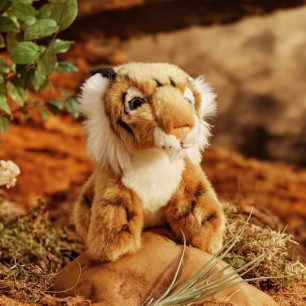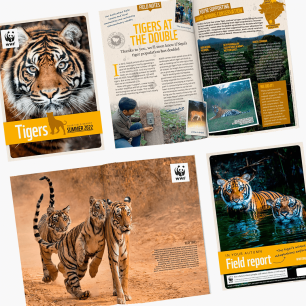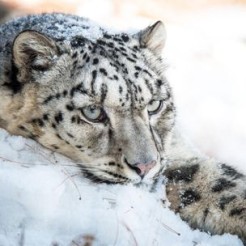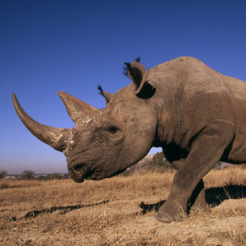There are more tigers in captivity than are left in the wild. Tigers used to roam most of Asia, but now they occupy around just 8% of their original range.
Your adoption will help fund tiger protection projects such as movement monitoring and reducing poaching, and will also help fund other vital work around the world. When you choose an animal adoption, you are supporting both your chosen animals as well as wider work to help bring our world back to life.
Adopt a tiger and receive
Tigers can be found in isolated forests and grasslands throughout Asia. Their habitat is wide ranging – from evergreen and monsoon forests, to mixed coniferous-deciduous woodlands, and mangrove swamps. There are estimated to be around 4,500 tigers in the wild.
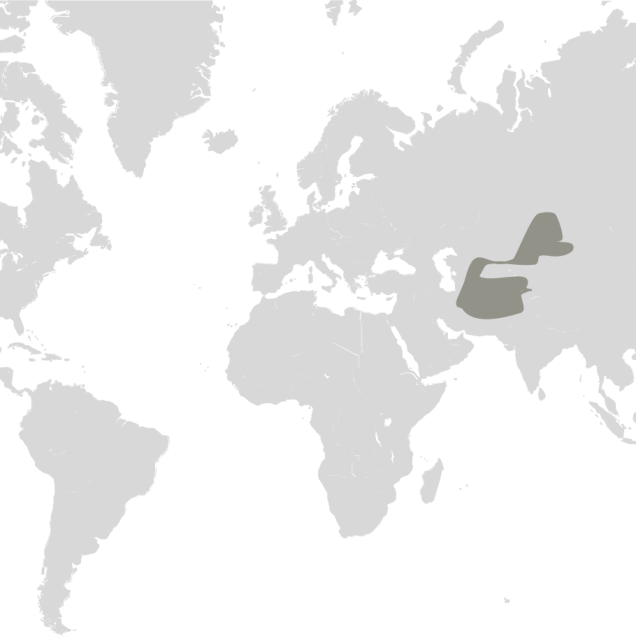
Threats that tigers face

POACHING AND ILLEGAL WILDLIFE TRADE
The parts of at least 110 tigers were seized in Asia annually between 2000-2015. This equates to over 2 tigers per week seized in illegal wildlife trade. Mainly killed for luxury products, using their skins and bones.
HABITAT LOSS
Gradually, tigers are being forced into small, scattered islands of remaining habitat. Tigers range has reduced by 95% since historical times.
HUMAN TIGER CONFLICT
As tiger range declines, they come closer and closer to people. This can lead to conflict as people protect their families and livestock from tigers.

LOSS OF PREY
Reduction in tiger prey, due to hunting and habitat deterioration, has a direct effect on wild tiger populations.
How We Can Help
We’re determined to help secure a viable future for wild tigers. Our goal is by 2034, wild tiger populations and distribution are increasing or stable in priority landscapes across their existing and historic range.
Your adoption and support will help us:
- secure well-managed protected areas
- restore fragmented areas of habitat (wildlife corridors) so tiger populations can grow
- strengthen anti-poaching patrols in and around protected areas
- conduct camera trap surveys to be able to track population trends and guide conservation action
- fund our other essential work around the world

Last minute gift?
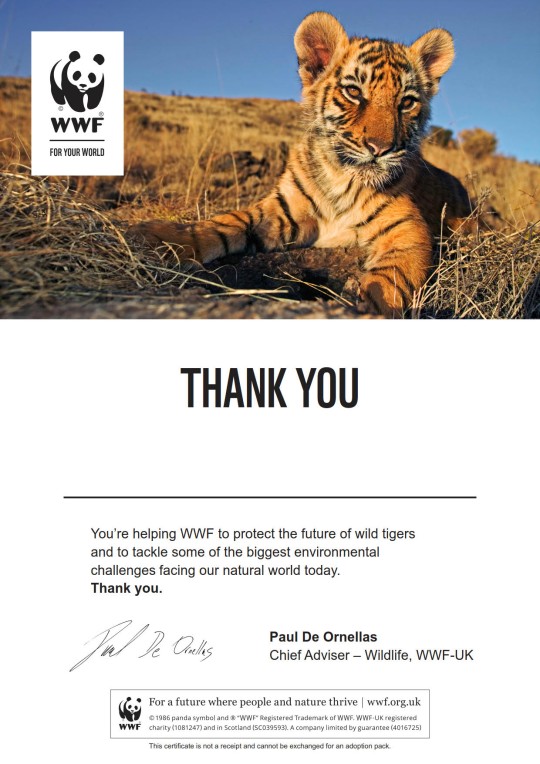
Free delivery
We offer free delivery but ask you to consider helping to cover postage with an optional £3 donation taken at checkout. This means more of your gift can go towards supporting your adoption animal and our wider work.
Welcome packs will be sent within 2-3 working days - but allow up to 5 days for it to arrive.
Want to protect other big cats too? Check out our adopt a big cat page to find out more.

